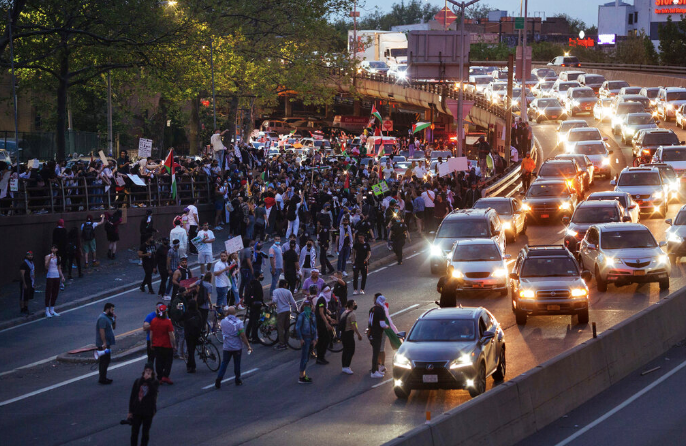Jordan Hosts Peace Talks with Israel and Palestine Amid Escalating Tensions
Representatives from the European Union and Israel posing in front of the Al-Aqsa Mosque in Jerusalem. Photo: AP/Mahmoud Illean
On Sunday, Feb. 26, Israeli and Palestinian delegations were hosted in Aqaba, Jordan in an attempt to curb an increase in violence in the West Bank. Representatives from Egypt and the United States were also in attendance to watch the talks. These talks mark a historical advancement in Israel-Palestine relations as the first major diplomatic development since 2014; an unnamed Jordanian official called it, “a major accomplishment” and American President Joe Biden expressed thanks to Jordan and King Abdullah for "convening this historic gathering."
The meeting comes in the wake of several weeks of escalating violence in the region, particularly recent attacks from both sides that led to the deaths of 11 Palestinian and two Israeli civilians. Israel attributes their recent crackdowns to a 10-month ongoing operation designed to put down Palestinian unrest in the West Bank. These outbreaks are cause for concern not only for the involved parties but for those who stand to take blows from the fallout— neighbors such as Jordan and Egypt, who were both present at the peace talks last weekend.
At the meeting, both Israeli and Palestinian parties emerged with a renewed interest in peace. In a joint statement produced that day, both sides pledged to maintain a ceasefire and limit violence in the occupied territories. This agreement, the first of its kind in nearly a decade, introduces a plan to curb Israeli crackdown and settlement building while incentivizing cooperation on the part of Palestine. The document is to be in effect for up to six months.
Activists blocking traffic in support of Palestine in New York in May, 2021. Photo: AP/ Kevin Hagen
However, initial responses by both the Palestinian Hamas militant group and the Israeli Defense Ministry cast doubt on the effectiveness of the agreement. Hamas has publicly announced its distaste for the meeting, accusing it of containing pro-Israeli bias and meaningless hollow gestures in a fruitless attempt to curb Israeli violence. As a result, it is doubtful that Hamas, which has even gone so far as to criticize the Palestinian Authority for attending the meeting at all, will honor the peace agreement.
At the same time, members of Israel’s new far-right Netanyahu administration have openly voiced their intent to disregard the agreement. Finance Minister Bezalel Smotrich, who was not present at the negotiations in Jordan, wrote on Twitter, "The IDF will continue to act to counter terrorism in all areas of the Yosh without any limitation." In addition, Netanyahu himself explicitly stated on Twitter that settlement building plans in the West Bank cities of Judea and Samaria “will not freeze” and will continue despite the agreement made in Jordan mere hours earlier.
Although the agreement formed in Jordan may have questionable effectiveness in the months to come due to its refusal by Hamas and the Netanyahu regime, it represents a possibility for peace in the region. All actors are set to meet once more in Egypt, with the goal of coming to a more concrete agreement before the holy Islamic month of Ramadan.


